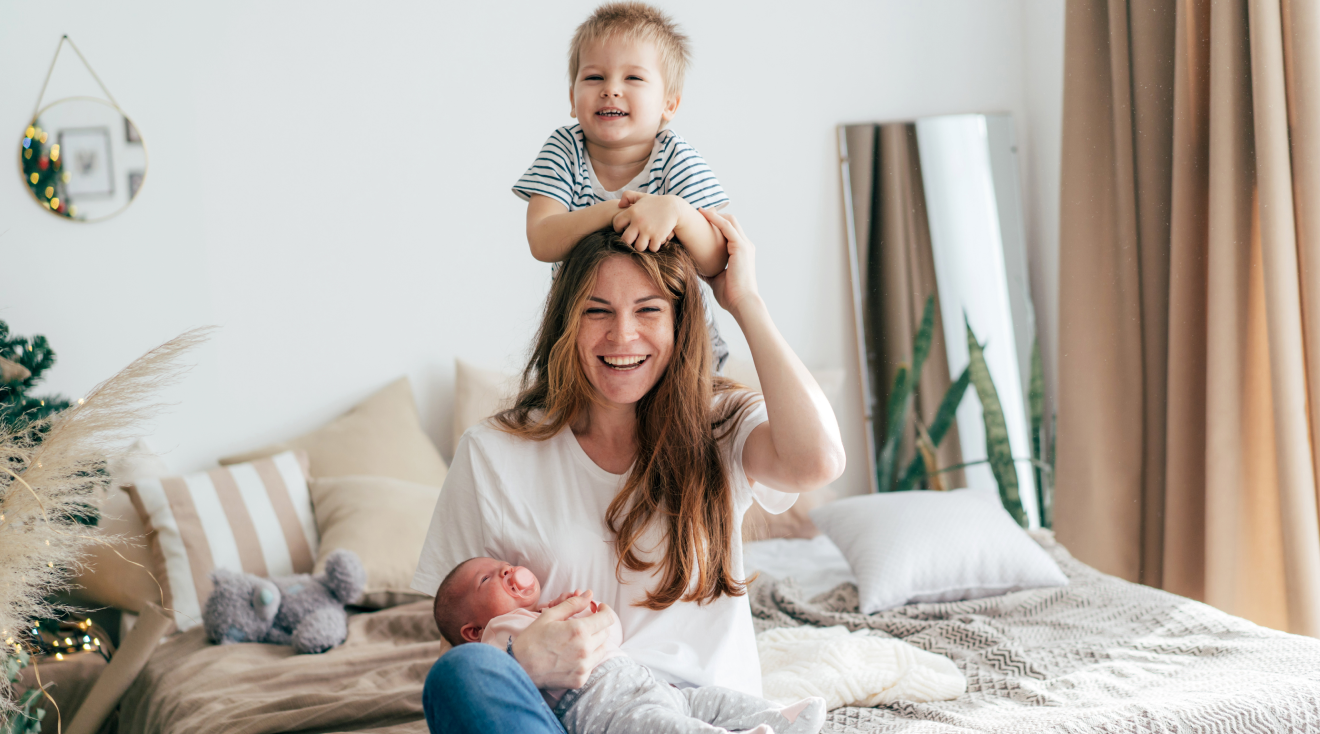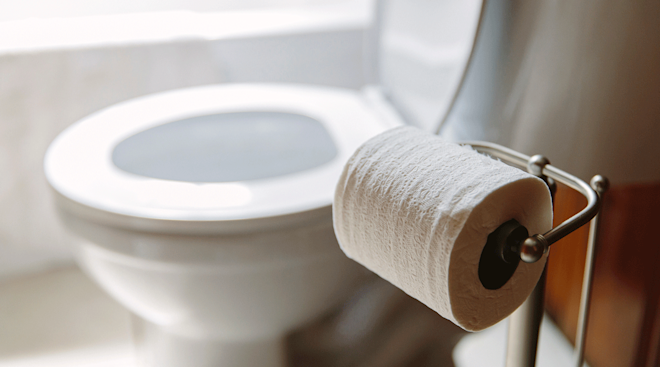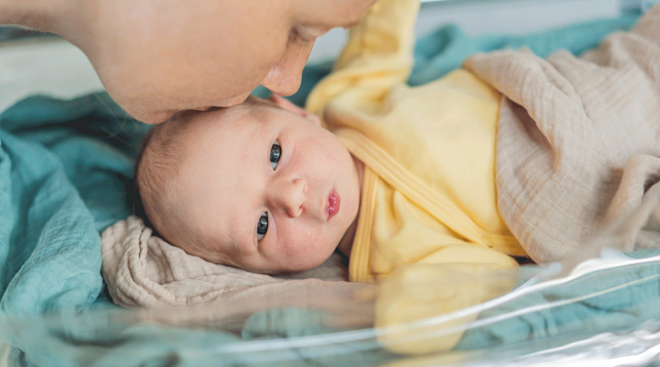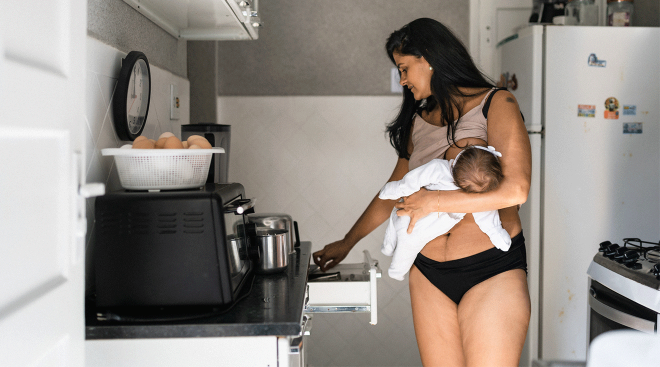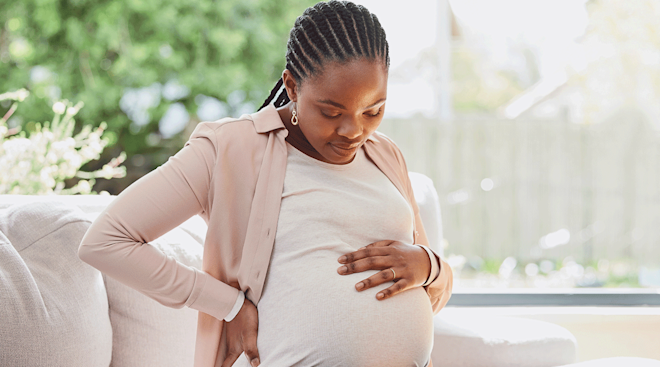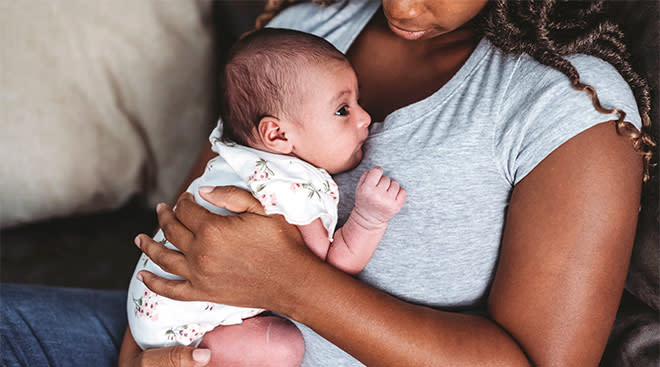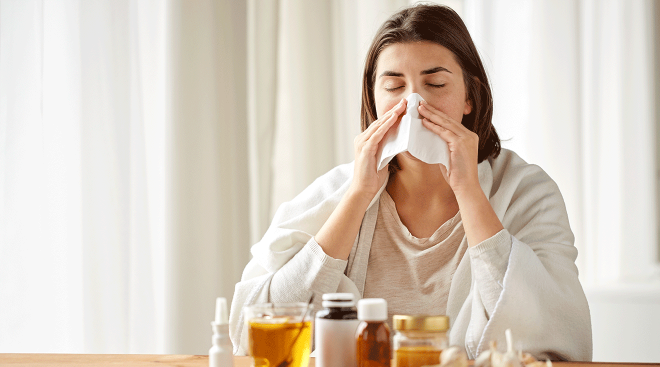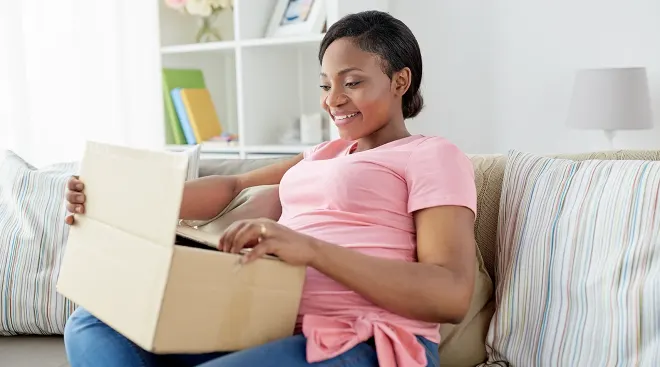7 Important Mental Wellness Lessons I Learned as a New Mom
As a mom of two toddlers, I’ve never been more aware of my mental wellness struggles than I have been in the last five years. Motherhood is a lesson in patience and perseverance, often leaving you feeling like there’s no time for a shred of self-care. The roller coaster of complex emotions is enough to leave even the most mentally sound feeling burned-out. But as often as I’ve felt crippling anxiety, I’ve also felt overwhelming love and happiness.
I’ve dealt with generalized anxiety my whole life, and up until my first pregnancy, it was something I had learned to manage on my own with the help of intermittent periods of therapy. Becoming a mom, however, threw me off-balance, and I entered a new realm of hormone surges and tricky situations that pushed me to my limits. All of that said, this stage of my life has taught me a lot. Here are some of the most important lessons I’ve learned as a mom thus far.
After giving birth to my first daughter, it was drilled into my head that I should be exclusively breastfeeding and pumping. I started to feel like this was the only option, even getting frustrated when my husband or mom tried to tell me this wasn’t true. When I struggled to produce breast milk or to get my baby to latch, I felt I had failed as a mom. My difficulty with breastfeeding led to some mild postpartum depression, until I finally considered what might actually lessen my stress and benefit my daughter—supplementing my breastfeeding with formula and bottle-feeding.
As hard as it was for me to make that change, it drastically improved my mental state and ability to parent. It was the first of many times where I realized that sometimes you have to do what works for you instead of what you think you should be doing. “There is no postpartum wellness without considering mental health,” says Dr. Alyssa Berlin, PsyD, a clinical psychologist specializing in pregnancy, postpartum and parenting. “I always tell my clients that prioritizing a healthy mental state is the single most important thing moms can do for themselves and their family.”
At home with a newborn, I often felt stuck in place and isolated. While her nap schedule impeded on any social calendar I might have otherwise had, we were able to go for daily walks that seemed to improve both of our moods. The outdoors quickly became a refuge for me. Whenever I started to feel sad or irritable, we went for a walk. If she was crying incessantly, we stepped outside and she almost instantly got quiet. As she got older, I made it a point to go to the park or the beach as much as possible. Now, after a long day of parenting, I sit on my front porch and just absorb the nature around me to unwind.
Spending time outdoors leaves me feeling relaxed, refreshed and generally happier. It’s not just in my head, either. “Nature provides a calming environment that reduces stress and anxiety, lowers blood pressure and improves cognitive function,” says Dr. Berlin. “Studies have shown that even brief exposure to green spaces can enhance mood and attention span.” So try to find some time, if only just a few minutes, to get outside and pause to soak up the sun when you can.
Moms can feel a lot of pressure to always come off as happy and grateful. In that first year of motherhood, I often felt extremely guilty for any negative emotion I had concerning my kids. In reality, it’s okay—and normal!—to feel all of the emotions, not just the positive ones. When I started opening up to my other mom friends, I felt validated in these emotions (instead of judged), and I appreciated how much they truly got it.
Dr. Berlin agrees, saying that other mothers are able to “offer a unique form of empathy and validation” as they understand firsthand where you’re coming from. “Building a supportive network of fellow mothers can combat feelings of isolation and provide a sense of belonging,” she says. If you’re having a tough time finding mom friends, join a local social media mom group—in the ones I’m in, moms are often trying to set up coffee dates and play dates. You can also seek out other moms at library classes and activities for your kids, or try meet-up groups like Circle Moms or the Peanut app.
4. PPD or PPA is nothing to be embarrassed about, and trying to ignore the signs won’t help in the long run.
While pregnant with my first, I desperately wanted to have the kind of perfect postpartum experience that, let’s be real, doesn’t actually exist. For a few months after she was born, I had difficulty adjusting to the massive lifestyle change I was going through and dealt with some mild postpartum depression. With my second daughter, I didn’t feel depressed, but I did deal with some postpartum anxiety that resulted in postpartum OCD-like tendencies. But I didn’t want to have that experience, so I chose to ignore the signs and act like everything was fine.
Of course what I should have done was be honest about my feelings with my closest family and friends or doctor, ask for help and look for a therapist. It took me a long time to start feeling like myself again, and seeking help sooner could have made a huge difference in my mental state. “It’s crucial not to dismiss or downplay these symptoms as untreated postpartum depression, and anxiety can have serious consequences for not just mom and baby, but the entire family,” Dr. Berlin says. Don’t ignore symptoms like feeling uncontrollably sad, constantly irritated or angry, extremely nervous or overwhelmed. “Here’s the best part: postpartum and mood disorders are entirely treatable and early intervention is key,” she says. Berlin strongly recommends speaking with a doctor, therapist or perinatal psychologist, especially for intense intrusive thoughts, severe anxiety or depression, extreme fatigue or suicidal thoughts. (If you or someone you know is struggling or in crisis, help is available. Call 911 or call or text 988, the Suicide & Crisis Lifeline.)
I’m no longer ashamed of my mental wellness struggles, and I’ve found that talking about them and facing them has helped me feel a lot better. One thing that helped me was opening up to some of my mom friends who had revealed they had gone through or were going through something similar. Hearing them speak about it made me feel less alone, and I felt encouraged that they were so open about their own experiences.
It didn’t take long for me to realize that everyone has an opinion on how a child should be raised, and for some reason, people (even complete strangers) think they have the right to express their opinions to you. As a nonconfrontational person, I was more likely to appease them than to stand up for what was right for my family. But this never sat well with me: Biting my tongue left me feeling stressed, anxious, guilty and honestly a little ashamed of myself. It took a while, but I eventually learned that it was okay to say “no,” set boundaries and advocate for myself, my kids and my family.
Once I started asking others to respect what we wanted (saying things like “please don’t turn the TV on now, we try to limit screen time” or “we don’t feel comfortable with anyone kissing her on the face”), I not only felt less stressed, but I also felt proud of myself. I learned I don’t need to explain why I’ve made these choices—I just have to say that I’m the parent, and it’s ultimately my decision. Setting these types of boundaries and learning how to say “no” has made me feel more confident as a mom.
For the first two years of motherhood, I struggled with adjusting to the lifestyle change that came with it. As I tried to get used to my new normal, I was also trying to hang on to parts of my old life—like having a (mostly) clutter-free home, being able to run out and buy coffee every morning and traveling for work. But after I had my second daughter, I came to the realization that I had to give up some of the things I had been so used to pre-kids in order to really be happy in the present moment. Doing this often means taking a step back from whatever chaotic situation I’m in, closing my eyes and letting myself breathe and focus on a mantra like, “this is only temporary.” Even if I only have 30 seconds to do that, it genuinely helps me stay present.
Obviously this was tough at first, and involved a lot of moments where I felt overwhelmed or started to feel sorry for myself. But I put a lot of work into shifting my perspective, which meant reminding myself that every season of motherhood is temporary. Whenever I feel extremely stressed about the mess around me, I remember that one day my kids will be older and we won’t have little toys in every room of my house. If I feel sad that I can’t book a certain vacation because it just won’t work with my kids or our schedule, I think about how now is the time for the kid-friendly trips, and that won’t last forever. Basically, I started actively reminding myself that whatever I was struggling with in this moment wouldn’t last, and that, later on, I would probably miss parts of this season, too. Changing my perspective has helped me enjoy what I’m doing in the moment instead of wishing life were different. I still know that it’s okay to feel overwhelmed, stressed or a little sad, but I also find that, for me, embracing the chaos instead of trying to fight it has made a world of difference.
I know that telling any mother they need to make more time for themselves can often elicit an eye roll. And I totally get it, because I know exactly how hard that can be. However, it really is true that finding time for yourself each day is incredibly important to fill yourself back up and can make you feel happier and more confident as a mother. After my second daughter was born, I was constantly feeling overstimulated and touched out and knew I needed to carve out some “me time.” For me, this meant forcing myself to wake up 45 minutes earlier than my kids each day (the morning people had been right all along!). At night I’m too exhausted to feel like I’ve actually enjoyed my alone time, and there’s no way it would ever happen during the day with our schedule. But in the morning, spending some time on my own leaves me feeling more centered, balanced and positive about the day ahead. To find time for yourself, don’t be shy about enlisting your village to care for baby while you focus on what fulfills you. Leaving dad or grandma with a bottle and a pacifier can give you a little time for self-care.
“Me time” can look different for everyone. It doesn’t have to be long—even 15 or 20 minutes can make a difference, says Dr. Berlin. And it also doesn’t need to be productive. I usually work out in the morning, but even if I just wake up and sit there and stare at my phone or read a book, I still cherish those moments alone. Just be sure to do something you enjoy on your own, which Dr. Berlin says can help you reduce stress, replenish mental and emotional resources and gain clarity on your personal goals and priorities. “It reaffirms a sense of identity outside of the caregiving role, boosting self-esteem and overall satisfaction with life,” she says. “Don’t forget that you are a mom, of course, but you are still an individual.”
Philips Avent understands that new moms can take the best care of baby when they take time for their own self-care too. Philips Avent’s portfolio of trusted baby products and solutions are designed to help new parents Share the Care for baby with loved ones. Read more on TheBump.com.
Please note: The Bump and the materials and information it contains are not intended to, and do not constitute, medical or other health advice or diagnosis and should not be used as such. You should always consult with a qualified physician or health professional about your specific circumstances.
Dr. Alyssa Berlin is a clinical psychologist specializing in pregnancy, postpartum and parenting. She is the creator of The AfterBirth Plan™, a program that prepares couples for what to expect after a baby is born, and is a faculty member of Maternal Mental Health NOW Training Institute.
Navigate forward to interact with the calendar and select a date. Press the question mark key to get the keyboard shortcuts for changing dates.
































